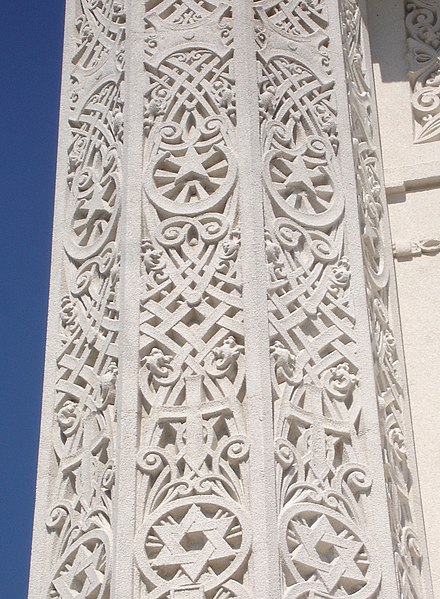Baháʼu'lláh was the founder of the Baháʼí Faith. He was born to an aristocratic family in Persia and was exiled due to his adherence to the messianic Bábí Faith. In 1863, in Iraq, he first announced his claim to a revelation from God and spent the rest of his life in further imprisonment in the Ottoman Empire. His teachings revolved around the principles of unity and religious renewal, ranging from moral and spiritual progress to world governance.
Baháʼu'lláh in 1868
A depiction of Mírzá Buzurg, the father of Baháʼu'lláh
The Shrine of the Báb, set amidst 19 terraces on Mt. Carmel in Haifa, Israel
Evening view of the Shrine of the Báb, an important pilgrimage site for all Bahá’ís
The Baháʼí Faith is a religion founded in the 19th century that teaches the essential worth of all religions and the unity of all people. Established by Baháʼu'lláh, it initially developed in Iran and parts of the Middle East, where it has faced ongoing persecution since its inception. The religion is estimated to have 5 to 8 million adherents, known as Baháʼís, spread throughout most of the world's countries and territories.
Seat of the Universal House of Justice, governing body of the Baháʼís, in Haifa, Israel
Baháʼí House of Worship in Ingleside, Sydney, Australia
Symbols of many religions on a pillar of the Baháʼí House of Worship in Wilmette, Illinois, U.S.
The Baháʼí gardens in Haifa, Israel








